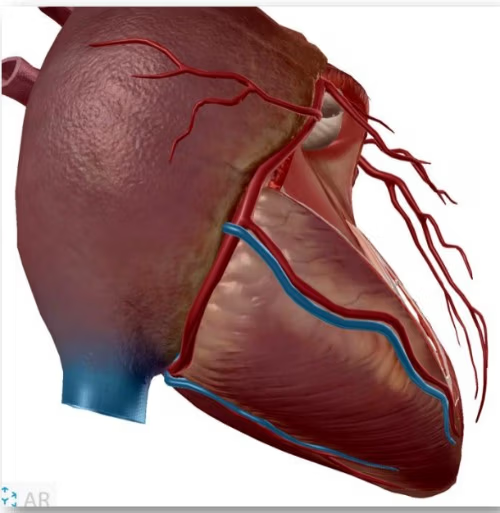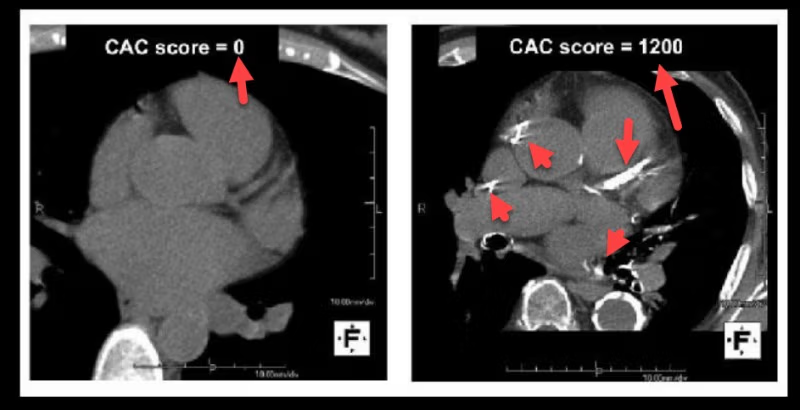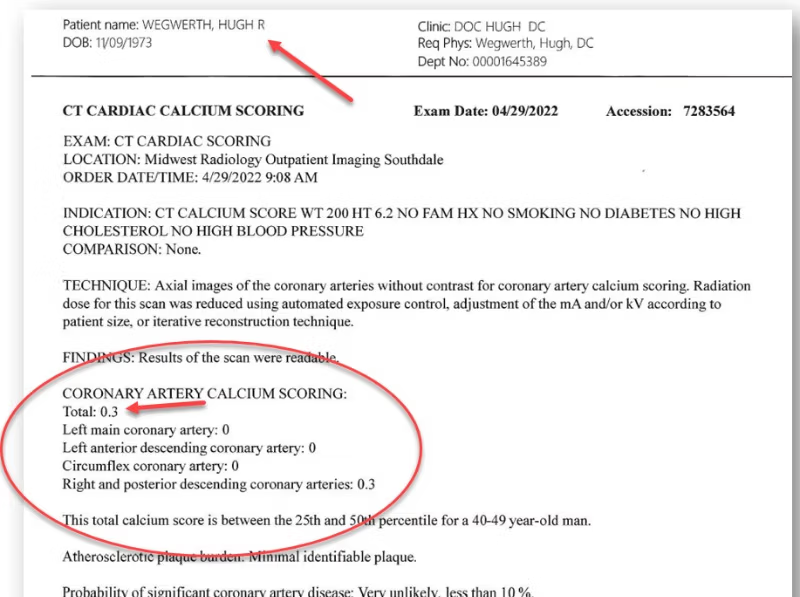Heart Scan
Cardiovascular health is extremely important. Just like a leaky gut or a leaky brain, you can have a leaky endothelium (the thin membrane of cells that line the inside of the heart and blood vessels).
I have found that many people who have a chronic condition often have a vascular issue that is preventing them from healing. A polytherapy approach is important to solve chronic issues, because they may be caused by any number of underlying, simpler problems.
Heart scans can be done for around $99 now. It is also called a calcium score screening, or coronary calcium scan. Using a CT scan machine, doctors will examine your heart to see if any of your blood vessels or arteries are calcified.
Calcification can start with a soft-tissue development within the arteries, allowing for a calcium buildup to occur between the soft tissue and the arteries.
Calcification in your arteries and heart also often means there is a calcium buildup in your legs or in your brain. The score ranges from 0 all the way up beyond 1200, with 0 representing no calcium in the arteries, and 1200 representing heavy buildup.
Calcium in your arteries can put you at greater risk of heart disease and stroke. A score over 400 is a high risk for heart attack. The good news is almost all treatments include lifestyle changes, either as the main form of medical treatment or as a supplement to treatment (in more extreme cases).
Arteries with a score of 100 are similar to the arteries of a 73-year-old person, while 0 represents a person in their late 30s. My patient in his 40s had a score in the 2100 range, showing he had the heart of a 90-year-old.
In my own personal scan, they gave each of the five individual arteries around the heart a score. One of my arteries has a score of 0.3, while the rest are 0. This tells me I do have a calcium deposit in my heart, and that I can make some more lifestyle changes to improve, and prevent further buildup.
This scan is a test that can be done if you are not experiencing any symptoms, and may tell you if you are at risk for future heart disease. It is worth knowing what your baseline is now, so you can make these changes and increase your health.
Ready to take care of your heart health?
Frequently Asked Questions (FAQ)
A coronary calcium score, also known as a calcium score screening or coronary calcium scan, is a CT scan that measures calcification in your heart’s arteries to assess your risk for heart disease.
A score of 0 means no calcium buildup and low risk, while scores over 400 indicate high risk for heart attack. Some patients may have scores over 1200, showing heavy arterial calcification.
This scan can detect early signs of heart disease before symptoms appear, allowing you to make lifestyle changes or receive medical treatment to reduce risks.
In many places, a coronary calcium scan can be done for around $99, making it an affordable way to check your heart health.










